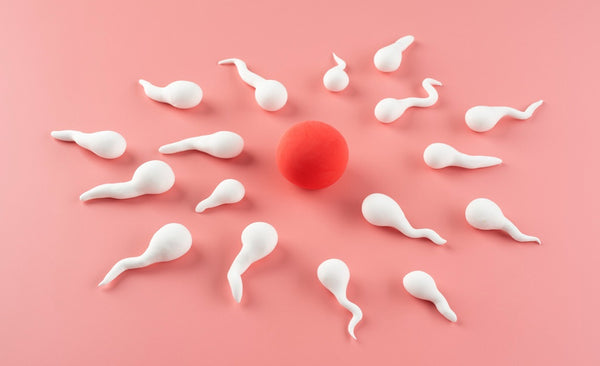What is the Lymphatic System?
You may have heard about your lymphatic system being an important part of your immune system. Well, you heard right because the lymphatic system is vital for the everyday functioning of the body and is involved in almost all bodily processes. It is a network of tissues and lymphoid organs that help rid the body of toxins, waste and other unwanted materials.
The lymphatic system is the garbage disposal system of your body!
Your body is bathing in fluid. In fact, 50-60 percent of the human body is made up of water! This is pretty incredible as fluid is found in each and every tissue of your body. There is nowhere in your body where there is no water. Water is the main constituent of cells, tissues and organs and is vital for life. Water in the body is essential for building and maintaining the cells and tissues. It lubricates the mucus membranes and joints, helps maintain homeostasis, transports nutrients and waste products, regulates body temperature, and works as a shock absorber.
So what has the water got to do with the lymphatic system?
As the body goes on doing all its bodily functions, there will be cellular waste from all these processes – waste that is being transported to the interstitial fluid surrounding the cells in the tissues. The lymphatic vessels gather this interstitial fluid now known as lymph, then transports it through the lymphatic system where it is filtered and returned to the circulatory system.
Anatomy of the lympathic system
The lymphatic system consists of lymphatic vessels, lymph nodes, and what are known as lymphoid organs. The thymus, spleen, tonsils, respiratory organs, and the bone marrow are all part of the lymphoid organ system. The lymphatic system runs parallel to the blood venous system, in that both return fluids centrally. While highly concentrated within the gut, it branches out to every part of our body and even reaches up to the brain.
The lymphatic system filters about 15 litres of fluid each day. That is three times more than the blood. The lymph consists of 95% water, proteins, waste products, fats and other natural substances. By collecting the interstitial fluid it helps to maintain the fluid balance in the body known as homeostasis.
Almost every part of the body can be affected by poor waste removal.
There are some 500−600 lymph nodes in the human body, the majority of them being concentrated around the neck. As the lymph is being transported, it passes through at least one lymph node. It is at the lymph nodes where lymph is being filtered from potentially harmful bacteria, viruses and other foreign matter. The lymph nodes contain dendritic cells, macrophages and the T and B cells and play a significant role in the body’s immune system.
The lymphatic system also absorbs and transports fat and fat-soluble vitamins from the digestive tract to the circulatory system. It has been speculated that the gut lymphatic system plays a role in obesity and fat metabolism.
Imagine if the lymphatic system becomes clogged. The body will struggle to transport the fluids from the tissues and organs in the body, toxins will accumulate, and the immune system will be impaired. Not an optimal situation!
The lympathic system: A one directional flow system
Unlike the circulatory system in which the heart acts as a pump, the lymphatic system has no pump but relies on smooth muscle contraction, manual muscle actions (daily activity and exercise), intestinal peristalsis, and correct breathing using the diaphragm.
In order for the fluid to move up towards the heart, there are functional lymphatic valves that assist in moving the fluid in the right direction to avoid fluid accumulation. However, there are several factors that will negatively impact on this mechanism and cause the lymphatic system to become clogged. These include a sedentary lifestyle, sitting or standing for long hours, dehydration, high levels of stress, declined elasticity of the tissues, impaired smooth muscle tone, chronic inflammation, obesity, and metabolic dysregulation.
Symptoms that may indicate a compromised lymphatic system include:
- Morning stiffness
- Fatigue
- Itchy and dry skin
- Breast tenderness
- Fluid retention
- Swollen feet and hands
- Brain fog
- Stubborn weight
- Neck pain and headaches
- Cellulite
- Painful and hard lumps in the neck, groin, armpits and even breasts!
- Pain to touch in the upper abdominal area
- Constipation, bloating and digestive discomfort
- Chronic sinus infections
Simple tools to keep your lymphatic system healthy and flowing
- Engage in regular activity and exercise to help move fluids from the periphery of your body back to the circulatory system.
- Avoid sitting for long hours. Take regular breaks to stand up, move and shake the body
- Keep hydrated and drink small amounts of water throughout the day to flush the system and hydrate all the tissues.
-
Use the lymfatic gloves daily, preferably before and while you take a shower. Start with 5 minutes per day and gradually increase the time you spend doing this self-care ritual.

- Avoid wearing tight clothing, underwear and wired bras. Consider body brushing, making sure to brush more around those areas.
- Practice deep breathing to engage the diaphragm to improve lymphatic stimulation.
- Get yourself a trampoline and start rebounding.
- Treat yourself with a lymphatic drainage massage.
- Eat foods that promote optimal lymphatic flow such as leafy greens, fibrous vegetables, and high antioxidant foods. Avoid inflammatory foods.
-
Take Happy Greens for improved nutrient assimilation and reduced inflammation.

- Clean out your home from highly toxic, chemical cleaning products and choose environmentally friendly products.
Summary
The lymphatic system is the garbage disposal system of the body. It assists in transporting and removing waste, toxins and unwanted materials from the tissues in order to maintain homeostasis, keep the immune system functioning well and ensure fats are being utilized.
A toxic system with poor waste removal can affect almost every part of the body and might just be the missing link as to why the body isn’t healing. Implementing simple strategies to assist in moving the lymphatic fluid can greatly improve one's health and vitality.
REFERENCES
Jéquier E and Constant F. Water as an essential nutrient: the physiological basis of hydration. Eur J Clin Nutr 64, 115–123 (2010). https://doi.org/10.1038/ejcn.2009.111
Moore J, and Bertram C. Lymphatic System Flows. Annual review of fluid mechanics. Vol. 50 (2018): 459-482.
https://doi.org/10.1146/annurev-fluid-122316-045259
Cifarelli V and Eichmann A. The Intestinal Lymphatic System: Functions and Metabolic Implications. Cellular and molecular gastroenterology and hepatology. Vol. 7,3 (2019): 503-513.
https://doi.org/10.1016/j.jcmgh.2018.12.002























